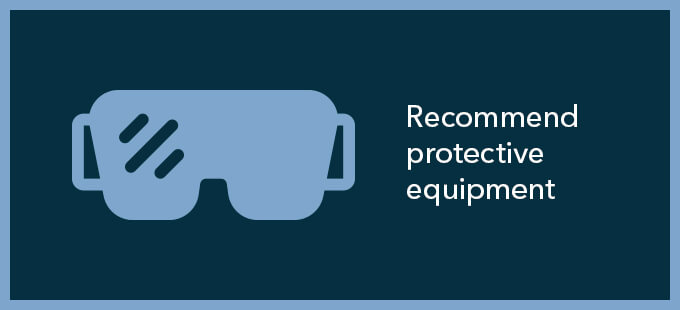 Whether your facility rents or owns a laser system (or multiple systems), you must designate a laser safety officer (LSO) to monitor and enforce your facility’s laser safety program for all laser systems, not just holmium and thulium, and across all specialties, not just urology.
Whether your facility rents or owns a laser system (or multiple systems), you must designate a laser safety officer (LSO) to monitor and enforce your facility’s laser safety program for all laser systems, not just holmium and thulium, and across all specialties, not just urology.
We’ve put together the following frequently asked questions to ensure you take the necessary steps to maintain a safe working environment in your facility.
Who is the laser safety officer (LSO)?
The LSO is an individual, often with a clinical background, who is already serving in another capacity at your facility. They have the authority and responsibility to evaluate, monitor, and enforce the control of laser hazards, and may suspend, restrict, or terminate the operation of a laser system. Their additional responsibilities are listed below.
What are the LSO’s responsibilities?
Responsibilities include, but are not limited to, the following:
- Establish and maintain a safety program in accordance with industry standards
- Classify all lasers under jurisdiction
- Evaluate work area hazards
- Implement control measures
- Recommend protective equipment
- Review warning signs and equipment labels
- Oversee adequate safety education and training
- Perform medical exams as required
- Ensure that necessary records are maintained
- Perform regular audits, surveys, and inspections of safety features and control measures
- Develop a plan for accident response, medical assistance, and documentation
- Approve laser system operations
Who determines the industry standards?
Laser safety standards are regulated by the following agencies:
- Association of Perioperative Registered Nurses (AORN) aorn.com
- The Board of Laser Safety (BLS) lasersafety.org
- The Food and Drug Administration (FDA) fda.gov
- American National Standards Institute (ANSI) ansi.org
- The Joint Commission jointcommission.org
- Accreditation Association for Ambulatory Health Care (AAAHC) aaahc.org
The ANSI Z136.3 Standard—“Safe Use of Lasers in Health Care”—provides “guidance for the safe use of lasers for diagnostic, cosmetic, preventative, and therapeutic applications where bodily structure or function is altered or symptoms are relieved,” and details the responsibilities of the LSO.
If renting a laser system, does the company providing the laser also provide the LSO?
No. Your facility will be required to designate an on-site LSO to assess compliance of third-party vendor lasers and equipment, maintenance records, staff credentials, and performance in accordance with facility policies for treatment areas.
Does the LSO have to run the laser at all times?
No. The role of an LSO is to support laser safety education and training for all healthcare personnel working with or around laser systems. An employee who isn’t LSO-certified may operate the laser system under the direction and supervision of the LSO.
How should a health system with multiple locations be managed?
The LSO may appoint a deputy laser safety officer (DLSO) to perform the duties of the LSO. For a health system with multiple facilities in various locations, multiple DLSOs may be assigned. A DLSO can be a laser user, laser operator, or someone else who has been trained and is familiar with your laser safety program. The LSO may also designate a laser safety site contact (LSSC) or laser safety specialist (LSS) to oversee safe laser use across multiple locations within a health system. These roles are explained in more detail in the ANSI Standard.
What LSO training is available?
Comprehensive training courses are available from the following providers:
- The Laser Institute lia.org
- Kentek lasersafetyu.kentek.com
- Rockwell Laser Industries rli.com
- Reliable Laser Solutions reliablelaser.com
Information about laser safety standards was gathered from the resources listed above. Cook Medical is not affiliated with any of the regulating organizations or training companies mentioned in this post, and the links provided are not promotional endorsements. Please consult with these agencies for the most up-to-date information regarding laser safety standards.



